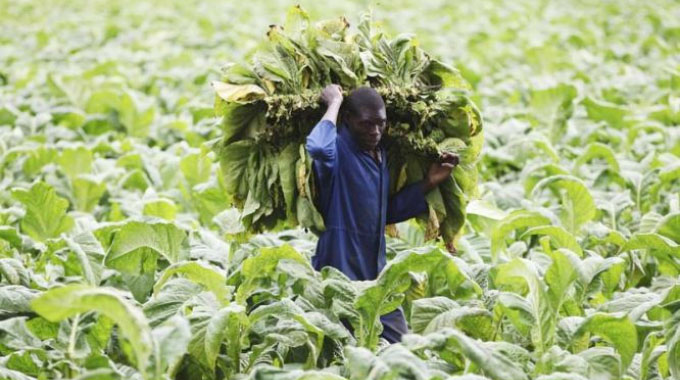High input prices: Farmers consider own seed banks, organic fertilisers
Edgar Vhera Agriculture Specialist Writer
WITH high input prices characterising much of the preparatory phase for the 2022/23 cropping season, farmers’ unions have called on their members to consider creating their own seed banks and developing alternatives to chemical fertilisers.
Zimbabwe Farmers Union (ZFU) secretary general Mr Paul Zakariya yesterday said such a move would bring sustainability to farmers’ operations adding that seed and chemical fertiliser prices had remained on the high side with the new season fast approaching.
An analysis of agro-input prices yesterday revealed that seed and fertilisers accounted for over 60 percent of total maize production costs for a one-hectare plot.
Mr Zakariya indicated that costs of agro-inputs were well beyond the reach of many farmers. As such farmers now needed to be united and organised to make their own seed and explore alternatives to chemical fertiliser use as the only sustainable way for agricultural development.
“As the rains are falling countrywide, most farmers who have not yet received Government support or who want to plant larger hectarages than the ones they are receiving support for, are apprehensive as prices remain high and out of their reach.
“Farmers need to introspect on the contribution that hybrid seed and chemical fertilisers are making in the agriculture revolution. They need to interrogate whether hybrid seed is the only answer and whether they can have alternative open pollinated varieties (OPV) that yield better. It is time, as a nation we go back to the basics and develop our own seed for the nation’s benefit,” continued Mr Zakariya.
He cited the success story of Zimbabwe Super Seeds which started in Masvingo and has since developed to produce certified seed for both domestic and export markets at affordable prices.
Small-scale farmers in the Uzumba Maramba Pfungwe, Mashonaland East and Tsholotsho, Matabeleland North have established community seed banks where they save, use, exchange and sell farm-saved seed. In 2013, Zimbabwe Super Seeds, a community-owned cooperative in Zaka district with 450 members developed certified seed for cowpeas, sugar beans, maize, sorghum and rice varieties better adapted to local condition such as high saline soils.
Most of the sorghum, pearl and finger millet and legumes, such as groundnut, bambara nut, cowpea and indigenous vegetables are sourced from farmer managed seed systems.
Zimbabwe Super Seeds over the years has grown to be a leading producer and marketer of certified seed mainly OPVs for maize, sugar beans, cowpeas, sorghum, mbambara nuts and ground nuts.
Mr Zakariya reminisced on the high levels of organisation and unity exhibited by farmers in the past when they formed cooperatives, for example, Farmers Coop (now Farm and City), which they equipped with agro-inputs for sale and later enjoyed dividends at the end of each year.
The use of alternatives to chemical fertilisers such as garden compost and animal manure needs to be developed further and upscaled.
Maize hybrid seed can achieve up to 15 tonnes per hectare yet the national average yield has in most years been below one tonne per hectare despite farmers having planted the hybrid seed. Optimal management of OPVs can give yields of between six and seven tonnes per hectare for maize.
Zimbabwe Commercial Farmers Union (ZCFU) president Dr Shadreck Makombe also concurred saying:
“Agro-inputs are expensive with most stockists now using the parallel market rate that is above $850 against US$1. We call upon shops to be sensitive and reduce prices so that farmers can afford the inputs,” said Dr Makombe.
Zimbabwe Integrated Commercial Farmers Union (ZICFU) president Mrs Mayiwepi Jiti said the prices of agro-inputs were on the rise thereby disadvantaging the farmers who buy their inputs at the last minute.
Most farmers in the Mashonaland provinces have each received a 10kg pack of maize seed and one Compound D bag of fertilisers of under the Government’s Pfumvudza/Intwasa programme. However, the hectarage covered by a 10kg pack of seed requires three bags of Compound D fertiliser, which means farmers will need to buy two more bags to add on to the one from Government.









Comments